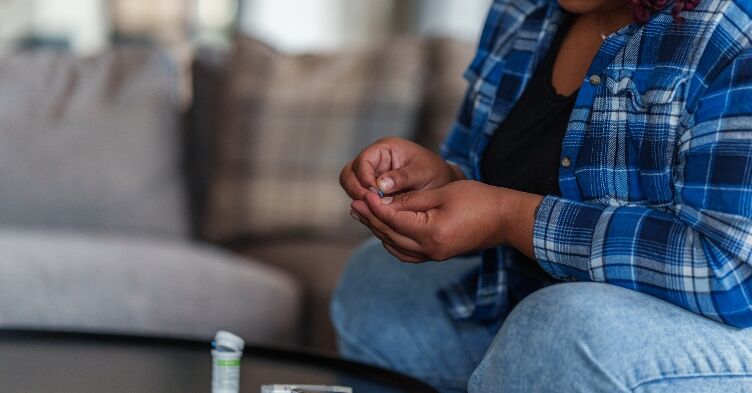Up to one in 20 new cases of diabetes could be linked to Covid infection, a large study has concluded.
An analysis of records from almost 630,000 people between the beginning of 2020 and the end of 2021 found a significantly higher rate of incident diabetes in those who had PCR-confirmed Covid.
The authors of the Canadian study concluded in JAMA Network Open that 3 to 5% of new diabetes diagnoses overall were attributable to the infection with men being most at risk.
Their data also suggested that those who were hospitalised with Covid appeared to be at greatest risk.
Figures show an increase of 148,951 cases in the country in 2021/22 bringing the total to 4.3 million.
In addition, 850,000 people are thought to have diabetes but do not know they have it.
A further 2.4 million are at high risk of developing the condition, the charity said raising concerns that the 64% of adults in England living with overweight or obesity in the UK is contributing to the increase.
Study author Professor Naveed Janjua, from the University of British Columbia, said lifestyle factors associated with pandemic related measures and stress may have contributed to change in lifestyle that could increase the risk of diabetes but it would have occurred among both who tested positive and negative for Covid in the same way so that doesn’t explain the findings.
‘We need studies to assess mechanism behind relationship of SARS-CoV-2 with increased risk of diabetes, whether it’s the direct effect of virus on insulin producing cells in the pancreas or inflammation and immune response related to infection.’
They noted their findings were consistent with several other studies that had also found an increased risk of diabetes after Covid-19 infection but others had found even higher rates.
The team concluded: ‘Our study highlights the importance of health agencies and clinicians being aware of the potential long-term consequences of Covid-19 and monitoring people after Covid-19 infection for new-onset diabetes for timely diagnosis and treatment.’
Professor Kamlesh Khunti, professor of primary care diabetes and vascular medicine, University of Leicester, said: ‘There have been a number of studies that have explored the association of Covid-19 with new onset diabetes. Some have shown a higher risk while others have not shown an increase in risk.’
But he said there are potential limitations with such research including that people may have had pre-existing diabetes which was not known but identified when they were admitted to hospital through routine blood tests or they developed transient diabetes because they were given steroids on admission.
‘This study is a well conducted very large study and takes account of a number of factors such as vaccination and deprivation status, but not ethnicity.’
He added: ‘Interestingly people who were vaccinated didn’t have a higher risk of diabetes which is a great message for the public.’






